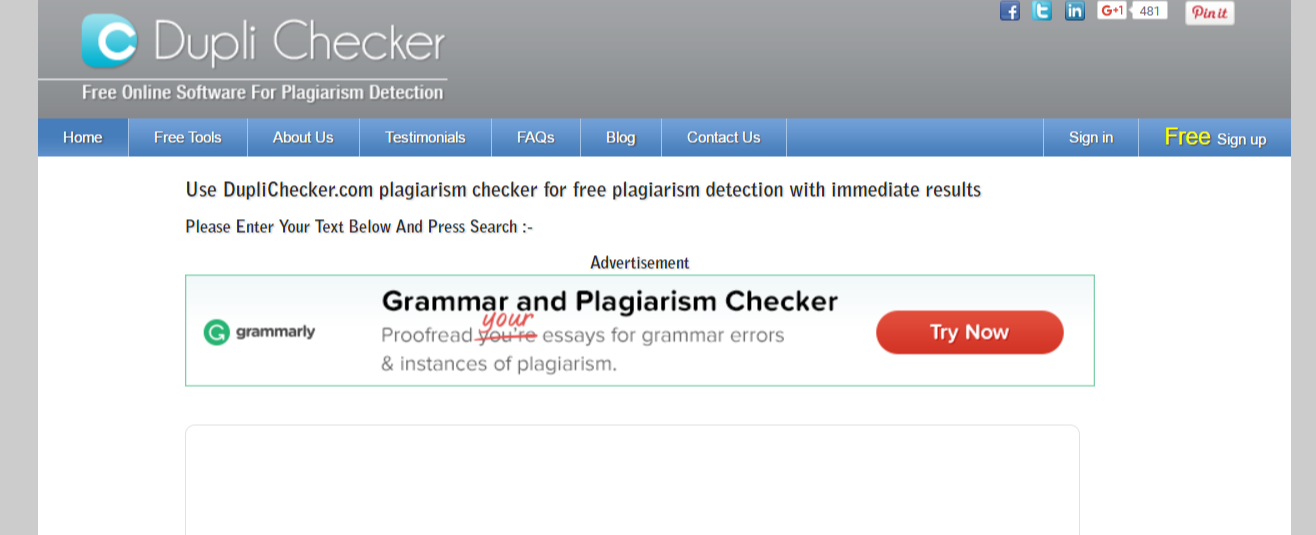Free Plagiarism Software For Students

A Free plagiarism checker for students – Plagramme. The whole array of terms derives from the original two-word combination ‘plagiarism checker’ defining a piece of software or a system dedicated to spotting and identifying signs of plagiarism in a particular paper. Use our free online originality detection to make sure your paper contains no plagiarism. Trusted by top colleges and universities the free plagiarism checker for students and teachers online allows students to scan academic papers, essays and assignments for plagiarized text. Plagly is changing the online writing world for plagiarism detection software by developing game changing detection technology. Plagly's free.
Plagiarism is a serious concerns amongst writers, students and teachers alike and thus the need to check for plagiarism is on a high. If you’re worried about traces of duplicate content in your essays or academic writing or blog content, you’ve come to the right place. Duplicate content is the number one issue teachers and academic professors face with college assignments. The same goes for writers, bloggers and students who constantly need to avoid plagiarism in their writing. In this article, I’ll list our top 20 best free plagiarism checker tools online for teachers and students that will help you detect copied content, check for intentional and unintentional plagiarism and address the issue easily. Sounds interesting?
Free Plagiarism Software For Ccp Students
What you’ll learn in this article? • What is plagiarism and types of plagiarism • Why you need to be using plagiarism checkers right now • Top 20 Best free plagiarism checkers tools and websites online • Advantages of using plagiarism checkers • How you can prevent plagiarism effectively (FAQs). Quick Navigation • • • • • • • • • • • • • • • • • • • • • • • • • • • • • • • • What is Plagiarism? Plagiarism is essentially the “imitation of someone else’s work” without giving them their due credit. Wikipedia defines plagiarism as the “wrongful appropriation” and “stealing and publication” of another author’s “language, thoughts, ideas, or expressions” and the representation of them as one’s own original work. Merriam Webster’s online dictionary defines the act of “plagiarizing” as: • stealing and passing off (the ideas or words of another) as one’s own, • Using (another’s production) without citing the source, • committing literary theft, • presenting as new and original an idea or derived from someone’s else work. Plagiarism is different from copyright infringement as in plagiarism is not a crime in itself but more of an ethical offence.
Free Plagiarism Software For Students
In schools, colleges or academia in general, plagiarism can lead to getting your project rejected, deduction of marks or even rustication from the university. The US law considers any sort of documented ideas (in any format like book, website writing, computer file) as an intellectual property of the owner and falls within the same range as stealing someone else’s invention. Examples of Plagiarism: There are dime a dozen and some of them are as follows: • copying someone else’s work without citing them properly, • paying an external writer/essay mill to write the essay on your behalf, • stealing ideas and verbal conversations (overheard during discussions etc) and presenting them as your own, • copying data from websites, library books and other sources verbatim, • using someone else’s images, music, videos and even style of writing in your own work without their explicit permission is a punishable plagiarism example. What Are The Different Types of Plagiarism? Plagiarism can commonly be divided into 5 types. They are as follows: • Direct plagiarism: Copying someone’s work verbatim (word by word) without giving credits.